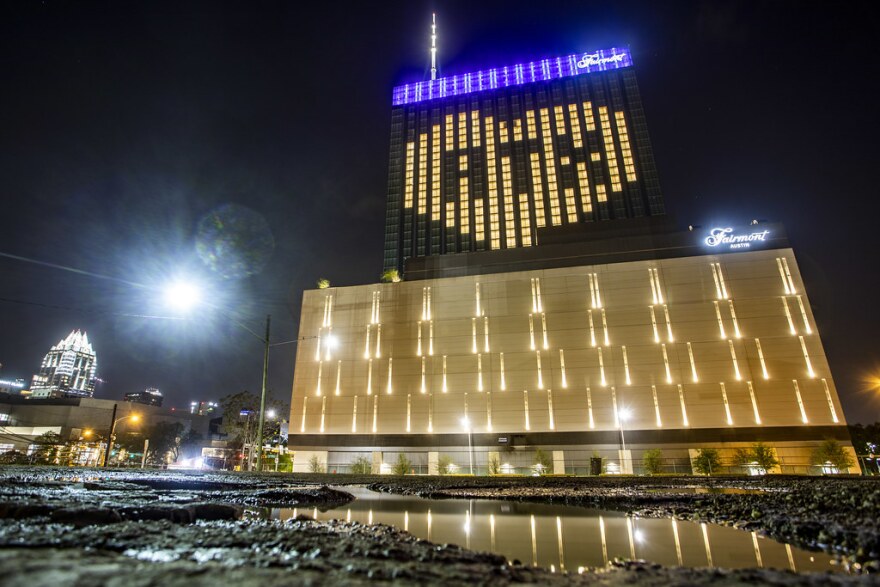2020 was not the year anyone expected. At first, there was plenty to look forward to: music and entertainment festivals, art shows, marathons, new restaurants opening, businesses booming.
All that changed when the COVID-19 pandemic hit. As the year finally comes to a close, KUT's Managing Editor Ben Philpott took a look back on 2020 by talking with people connected to its biggest news events.
Mobley: 'It feels like my work is bigger and broader in a way that I wouldn't have anticipated.'
Mobley, an Austin musician, was expecting 2020 to be "the biggest year of his career." He had a new single, a new record label and a big tour planned. He was even on a press tour promoting his 2020 plans when the pandemic began. But in the end, he said, this year was still the biggest of his career — just for a very different reason.
Raquel Coronado: 'How are we going to do this on a computer? I could not wrap my head around how it was going to work.'
Raquel Coronado teaches second grade at Uhland Elementary in Hays Consolidated Independent School District. Her classroom was looking forward to all the special events the end of the school year brings when the pandemic moved everything online. She said one of the biggest disappointments for her was not being able to say goodbye to her class.
Front Steps: 'The immediate need was for food. We had people going hungry on the streets those first few weeks.'
Nathan Smith is a housing case manager and Amy Price is director of development and communications for Front Steps, which runs the Austin Resource Center for the Homeless. When the pandemic shut down offices, schools and stores in downtown Austin, it shut down many of the ways Front Steps' clients eat, use the restroom, clean themselves and get money.
Chas Moore: 'There's so much work to be done ... but the good thing is, it's so much work that everybody has a part to play.'
Chas Moore is founder and executive director of the Austin Justice Coalition, an organization working to end systemic racism and improve the quality of life for people of color. Moore found himself in the local spotlight during this summer's protests for racial justice.
Pritesh Gandhi: 'I just wish folks could have been there ... to be faced with a patient who is quite literally struggling to get air. And the concern wasn't the COVID. It was, how am I going to afford these bills?'
Dr. Pritesh Gandhi works with People's Community Clinic in Austin. The program serves uninsured and medically underserved populations — individuals who have been disproportionately affected by the pandemic.






